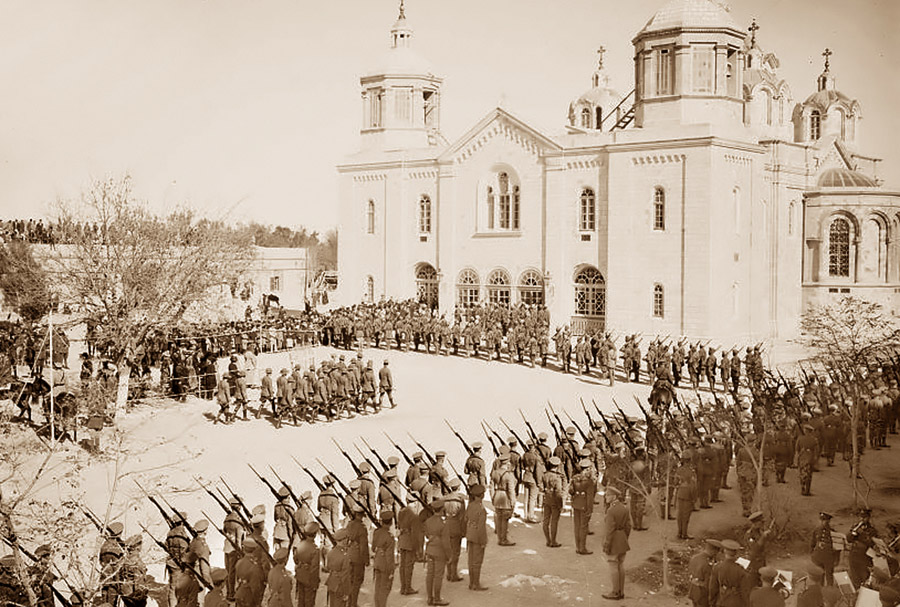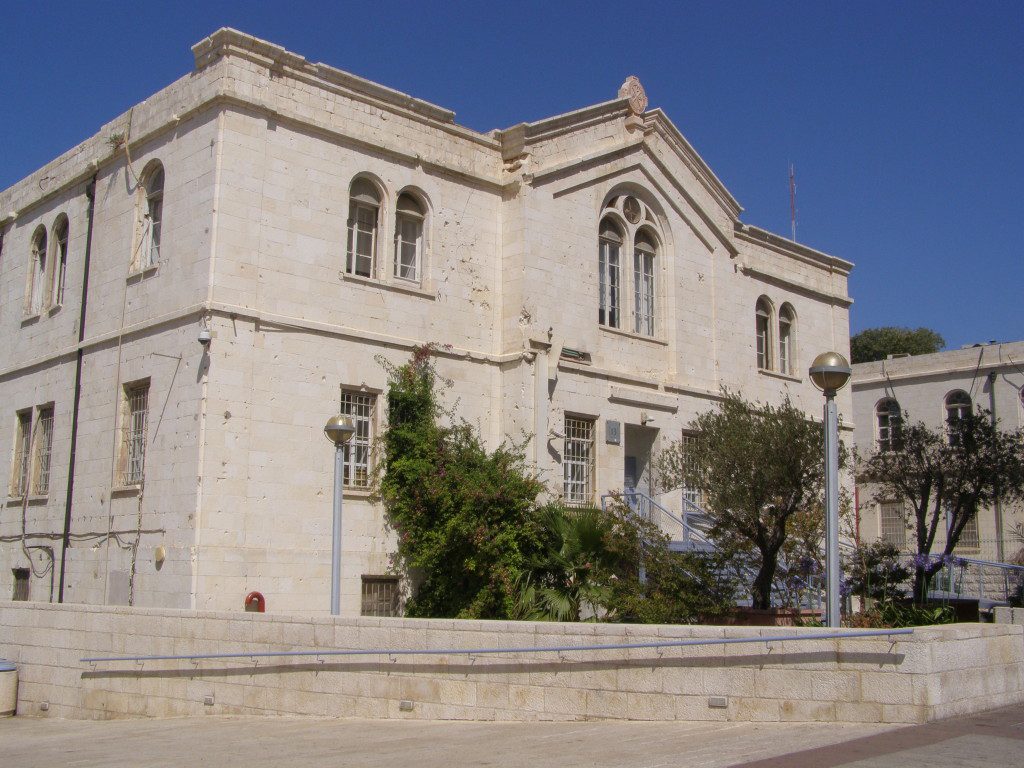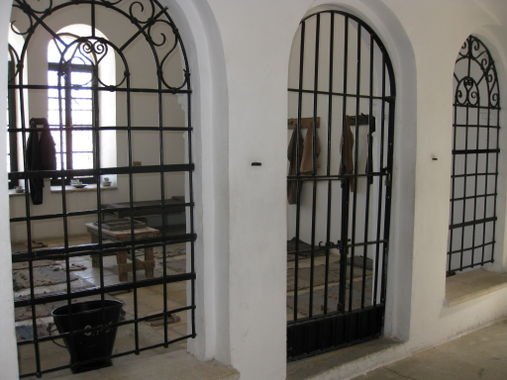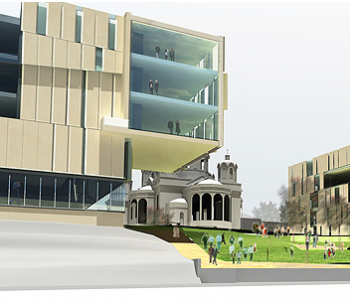The Russian Compound
September 10th 2013
 Covering approximately 17 acres in the center of Jerusalem, not far from the Old City walls, the Russian Compound was originally constructed in the 1860s. The compound changed hands and faces many times since its establishment, rendering it an interesting slice of Jerusalem multicultural history.
Covering approximately 17 acres in the center of Jerusalem, not far from the Old City walls, the Russian Compound was originally constructed in the 1860s. The compound changed hands and faces many times since its establishment, rendering it an interesting slice of Jerusalem multicultural history.
Today, the highlights of the Russian Compound are the Museum of Underground Prisoners, the Russian Holy Trinity Cathedral and the new campus of the Bezalel Academy of Arts and Design, currently under construction.
Originally managed under Russian auspices, it contained hostels for men and women, a consulate for the Russian government, an imposing Russian Holy Trinity Cathedral, a mission and a hospital, all designed to serve the 10,000 Russian Orthodox pilgrims who visited Jerusalem annually, mostly during the Easter season. In the early 20th century, the Ottoman government of Israel expelled the Russians.
 When the British took over the governance of the area under the framework of the Palestine Mandate, they converted Jerusalem’s Russian Compound to an administrative center, opening a police, jailing and judiciary center that still operates today. After the establishment of the State of Israel in 1948, the Israeli government shared the compound with the Russian Holy Trinity Cathedral, using most of the buildings for city government. Until 2006, the area was ironically also the heartbeat of Jerusalem’s nightlife.
When the British took over the governance of the area under the framework of the Palestine Mandate, they converted Jerusalem’s Russian Compound to an administrative center, opening a police, jailing and judiciary center that still operates today. After the establishment of the State of Israel in 1948, the Israeli government shared the compound with the Russian Holy Trinity Cathedral, using most of the buildings for city government. Until 2006, the area was ironically also the heartbeat of Jerusalem’s nightlife.
 Visitors to the Museum of Underground Prisoners are able to view the detention hall where new prisoners of the Jewish underground were entered into the system, various prisoner cells (including the narrow cells that were used to impose excruciating sentences of solitary confinement), a bakery where prisoners made their own pita bread, storerooms, a synagogue, workshops and prison yards, offices, the gallows room where condemned prisoners were held and a memorial to those who were hanged during the British Mandate.
Visitors to the Museum of Underground Prisoners are able to view the detention hall where new prisoners of the Jewish underground were entered into the system, various prisoner cells (including the narrow cells that were used to impose excruciating sentences of solitary confinement), a bakery where prisoners made their own pita bread, storerooms, a synagogue, workshops and prison yards, offices, the gallows room where condemned prisoners were held and a memorial to those who were hanged during the British Mandate.
The Russian Holy Trinity Cathedral resembles a castle, designed to echo the architectural magnificence of St. Petersburg. It serves as a center for Russian Orthodox pilgrims today.
 The Bezalel Academy, scheduled to open in 2017, was founded in 1906. Once located elsewhere in the city center and currently operating out of Mt. Scopus, it is Israel’s most famous art school and among the most prestigious in the world. For Bezalel’s new campus, the Russian Compound was chosen, in part, for its multicultural history and for its proximity to the center of Jerusalem. One of the Bezalel Academy’s goals is to bring young students and contemporary art to the streets of Jerusalem.
The Bezalel Academy, scheduled to open in 2017, was founded in 1906. Once located elsewhere in the city center and currently operating out of Mt. Scopus, it is Israel’s most famous art school and among the most prestigious in the world. For Bezalel’s new campus, the Russian Compound was chosen, in part, for its multicultural history and for its proximity to the center of Jerusalem. One of the Bezalel Academy’s goals is to bring young students and contemporary art to the streets of Jerusalem.











